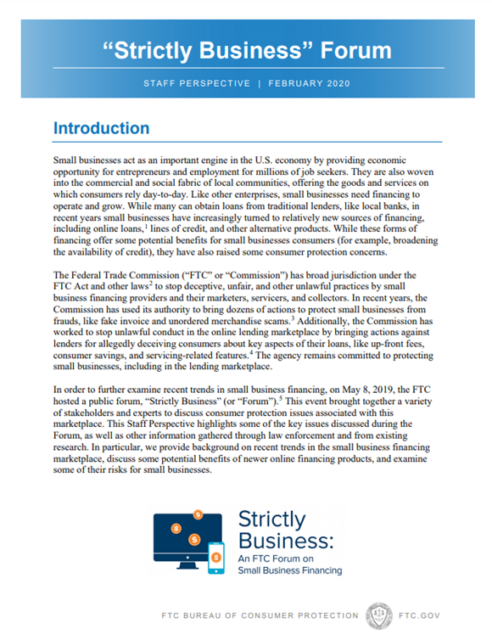On November 30, 2020, the Federal Trade Commission (FTC) announced that it had taken action against a debt collection company, Midwest Recovery Systems (“Midwest”), alleging that an alleged “debt parking” scheme caused more than $24 million in harm to consumers. While the complaint and settlement themselves are not that remarkable, the dissent filed by Commissioner Chopra is. Commissioner Chopra challenges the FTC’s approach to debt collection, suggesting the FTC refer such cases to the Consumer Financial Protection Bureau (CFPB) and that the FTC focus on other things. We have written previously about Commissioner Chopra’s other ideas for reshaping FTC approaches and priorities, and if Commissioner Chopra were to become the next Chair under President-elect Biden, things could get interesting at the agency.
First, a few words about the case. Also known as “passive debt collection,” debt parking is the practice of placing fake or questionable debts onto consumers’ credit reports to coerce them to pay. The “parked” bogus debt is often not discovered by a consumer until his or her credit report is accessed in connection with buying a car or home, opening a credit card, or seeking employment. Thus, although the debts may not be valid, consumers often feel pressured to pay them off—hence the millions of dollars allegedly hauled in by Midwest.Continue Reading FTC Commissioner Encourages Partnership with CFPB and “Systemic” Change Following FTC Action against Debt Collection Scheme
